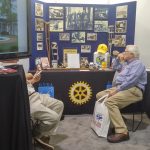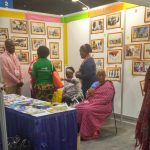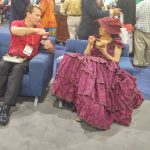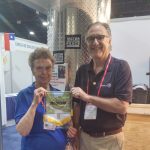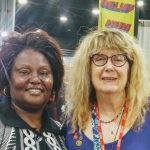This will not be a long-winded attempt to disguise complaint as clinical observation. But nor will it be an unequivocal homage to fatherhood. As most have gleaned, and now everyone will be able to acknowledge, I have a love / hate relationship with fathers.
My own father struggled with alcoholism and the brutality raised in his soul by his combat experience. We children cowered under the wrath that raged when he drank; and he drank more than he abstained. Our nightmares revolved around the sound of smashed dishes, our mother’s desperate entreaties, and the telltale wrench of a phone from the wall signalling the start of the terror.
As for the biological progenitor of my son, I will say little. He decamped on learning of my pregnancy, accusing me of deliberately deceiving him about the potential of conception. I had not. My doctors found the impending birth more startling than either parent. To the man’s credit, he paid child support for eighteen years albeit the bare minimum. I would have sacrificed the entirety of that contribution for the occasional visit or call to my son.
Ah but the fathers I have known! Here’s a special shout-out to Dan Smith, proud father of two and husband of Bobby Smith. Another for “Them Carnie Boys”, Ellen’s late husband and grown son, with his children Elizabeth, Owen, and Hudson. I’ve sat at the Easter table and watched how those children adore their father. And I cannot forget my brothers Frank with his seven children; Mark with four total (three who survived, one who did not); and Kevin who raised his stepdaughters.
Now if I started down this road in earnest, my morning would flow into afternoon and this blog post would be endless. I have only to look across the street (Jimmy Black, father of Sara) or scroll through Facebook, my phone book, my e-mail, my photo albums. Scores of marvelous fathers rise to remind me: My Rotarian friends, Kurt Hueschen, Phil Francois, Tim Emerson, Jim Staley, Dan Ryan, and on, and on, and on. If I try to list all of them, I’ll doubtless omit someone crucial. Suffice it to say that I’ve known enough wonderful fathers to salvage my poor image of the gender’s parental performance.
And then — you knew this would come — there was my favorite curmudgeon, Jay MacLaughlin, who honored me by calling me “daughter”. We’d stroll together: At dinner, at the cemetery, at the care facility where his wife spent her last months. He’d tease me endlessly, lecture me gently, and always, always, ask me, Do you need anything, honey? From the moment I met him, Jay turned his sparkle toward me. No difference between us — not political, nor social, nor religious — nothing could erase my fondness for him nor his for me. Simply, plainly, Jay gave me something that my own father strove to achieve in his last years but offered too late for redemption, I’m sorry to say.
Had I gained a more generous heart before my father died, I might have been able to forgive what he’d done and embrace what he tried to do in the end. But I did not. And I never felt that I’d been somebody’s little girl without the treachery of abuse until I became Jay MacLaughlin’s daughter-in-law. I never took the place of his own daughter, Virginia; but he made a different spot in his heart just for me.
We sparred with good-nature. I listened to his stories. I helped him with the computer. We shared the care of his wife Joanna. He confided in me: His love of his children; how proud they made him; a few regrets; how much he cherished his four grandchildren. When Jay spoke, in his gruff heavy voice, I fell silent and opened my heart.
When the doctors offered him choices for how to deal with his cancer, Jay called me. I was in my car; I turned off the ignition and held the phone to my ear. Tell me about your mother’s chemotherapy, he said. Did she suffer? Did it help? Was it worth it? He paused. Honey, I’m thinking of saying ‘no’ to the treatment. What do you think?
I sat in the heat of the car and answered his questions. He fell silent for a few minutes. I told him that I loved him. I told him that his children would be there for him, that I would be there for him, come what might. He said he knew all that; he said he wasn’t afraid. He asked me to come see him, to have dinner as we always did on Friday. He told me he was ready, that he missed his wife and that he was tired. I held the phone and prayed that the tears streaming down my cheeks would be the only sign of my sorrow. I didn’t want him to hear the sobs which I strained to suppress.
When I first met Jay, I got him a subscription to a beer-of-the-month service. As a token to illustrate the gift, I found a German mug at Waldo Antiques to present him. After Jay passed, I brought that mug home. When I see it, even two and a half years later, I feel a smile brighten my face.
My favorite curmudgeon occasionally still visits me in my dreams. He’s always laughing, and he always has a stein of Stella Artois by his side; and his beloved Joanna close at hand.
It’s the eighteenth day of the forty-second month of My Year Without Complaining. Life continues.












